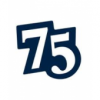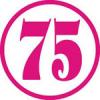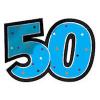
Helen Sharp's vogue pedigree is almost as romantic as her subtlety sexy knitwear. Her fashion genealogy began with her grandmother, who fashioned imported Shetland wool into fair-isle berets and continued with her mum who knitted the matching mittens.
After inheriting her grandmother's knitting needles Helen did what any genetically-inherited skilled knitter would do in England in the 80s--she got a degree in Knitwear Design. After graduating her first collection took-up an entire full-page spread in British Vogue. Shortly after she left dreary England for fashion-forward Milan, and started her first design job.
Helen must have missed the rain though as she later moved to Seattle. There she opened a sweater design business and catered to clients like Michael Kor, Ralph Lauren, Banana Republic, Jones, J. Crew, American Eagle, Liz Claiborne, Theory and Calvin Klein.
">http://www.youtube.com/watch?v=9REBPiJTVWU]
Decades later Helen still resides in Seattle, where she is still creating timeless, hand-framed knitwear from natural yarns. "Made in Seattle, with love," she says. Her artisanal knitwear is found in upscale boutiques all across the West Coast.
In addition to running Helen Sharp Knitwear she also owns The Knitting School (fairly self-explanatory), and is President at the Knitwear Network (a 20-year-old research and trend forecasting organization).
As an educator, fashion forecaster, successful entrepreneur and knit-fashion icon, Helen is a wealth of information—making her a coo to our Interview Series. I recently got the chance to sit down with Helen to pick her brain about how the industry has changed over the years, how she succeeded time and time again, and how to succeed as a young fashion professional:
What inspired you to get into the fashion industry?
I got into sweater design specifically because I visited a school (Nottingham Trent Uni) and saw all the crazy looking knitting machines and a room full of colorful yarn and decided "I want to do that!"
What is your focus within the industry?
Everything to do with machine knitting...designing...making...teaching
What type of education did it take to get you where you are today?
I grew up in England and took a one-year foundation course at art school where you do a bit of everything and then took a four year Bachelor’s degree at Trent specializing in Knitwear Design.
How has your career path progressed over the years?
My focus has remained in Knitwear and Sweaters. However, I have done everything within that field, from designing my own line, freelancing, selling designs to other companies, teaching and even designing for a brand.
What is your favorite part of working in the fashion/design business?
Being a creative person, I feel like I need to keep creating, similar to the way I need to keep eating, to stay alive. I am so surprised that I am not sick of it yet. I think it is because I am still learning.
What advice would you give to aspiring fashionistas?
You can learn from any experience, even the bad ones….so keep having those experiences!
What school(s) does your company generally recruit new hires from?
Sad to say, that I usually look to the UK first, since I know they will have a solid education in machine knitting. Hopefully that will change.
Do you think there is an overall increasing or decreasing need for people in the fashion industry?
I am not sure that the quantity has changed, but the type of work a designer working for a big brand would do in an average day might differ greatly from one working in a small business.
Which roles in the fashion industry do you think will offer the best career opportunities moving forward? eg. designer, PR, entrepreneur, etc.?
I think it really depends on the person. Some people are better suited to working for a company and some are better suited to running their own business. Having had my own business at a young age, I think I can say with confidence, that a little more experience would have gone a long way!
What designer(s) or brand(s) influenced you the most as a creative professional?
Why “influenced”? I am continually being influenced by what other designers are doing! I love the colorplay from designers like Diane DeClercq and Sophie Digard, I admire the clarity of vision of brands such as Vince and James Perse; I appreciate the humor of Paul Smith.
Do you think today's jobs in the fashion industry require more of an artist's touch or business-like ruthlessness?
Both!
Which skills do you consider to be most critical for a career in fashion?
Single-mindedness, a strong opinion and an open mind.
What do you think the future of fashion and design holds?
I am excited about the growth in small designer labels. Something for everyone--instead of a one size/style/color fits all philosophy.
Check out more interviews at The Fashion-Schools.org Interview Series.





